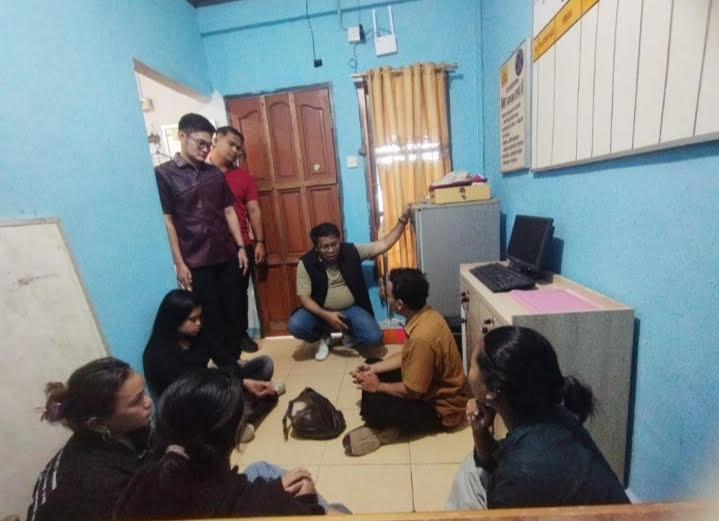Popular Reads
Top Results
Can't find what you're looking for?
View all search resultsPopular Reads
Top Results
Can't find what you're looking for?
View all search resultsGovt promises strict punishment for absent civil servants following Idul Fitri
Change text size
Gift Premium Articles
to Anyone
 Motorists wait for the one-way traffic scheme implementation in Tasikmalaya regency, West Java on March 29, 2025. The Tasikmalaya Municipality Police enforces the one-way traffic scheme on the road from Garut and Tasikmalaya in West Java to Central Java to prevent congestion during the 'mudik' (exodus) travel season ahead of the Idul Fitri holidays. (Antara/Adeng Bustomi)
Motorists wait for the one-way traffic scheme implementation in Tasikmalaya regency, West Java on March 29, 2025. The Tasikmalaya Municipality Police enforces the one-way traffic scheme on the road from Garut and Tasikmalaya in West Java to Central Java to prevent congestion during the 'mudik' (exodus) travel season ahead of the Idul Fitri holidays. (Antara/Adeng Bustomi)
T
he government will implement strict oversight and enforce penalties for civil servants who fail to return to work this week, despite the remote work policy, as the extended Idul Fitri holiday comes to an end.
Civil servants must resume working on Tuesday, following 11 days of holiday around the Nyepi (Balinese Hindu Day of Silence) on March 29 and Idul Fitri on March 31 and April 1.
The Administrative and Bureaucratic Reforms Ministry, however, allowed civil servants to work remotely on Tuesday to help alleviate congestion on toll roads from the mudik (exodus) travelers. Civil servants will then be required to return to the office on Wednesday.
Deputy Home Affairs Minister Bima Arya Sugiarto underlined that Tuesday was not an additional holiday, saying that anyone not working would receive necessary punishment.
“If there are [civil servants] who prolong their holidays without any notification, there will surely be sanctions in the form of warnings, administrative ones or otherwise. That has been stipulated,” Bima told The Jakarta Post on Monday.
Online applications are used to check civil servants’ attendance across government institutions and to track their remote work.
Read also: Intercity traffic scheme in place as ‘mudik’ return flow peaks

















